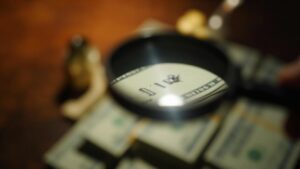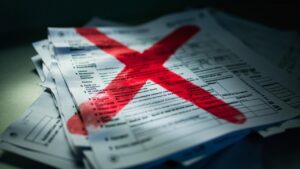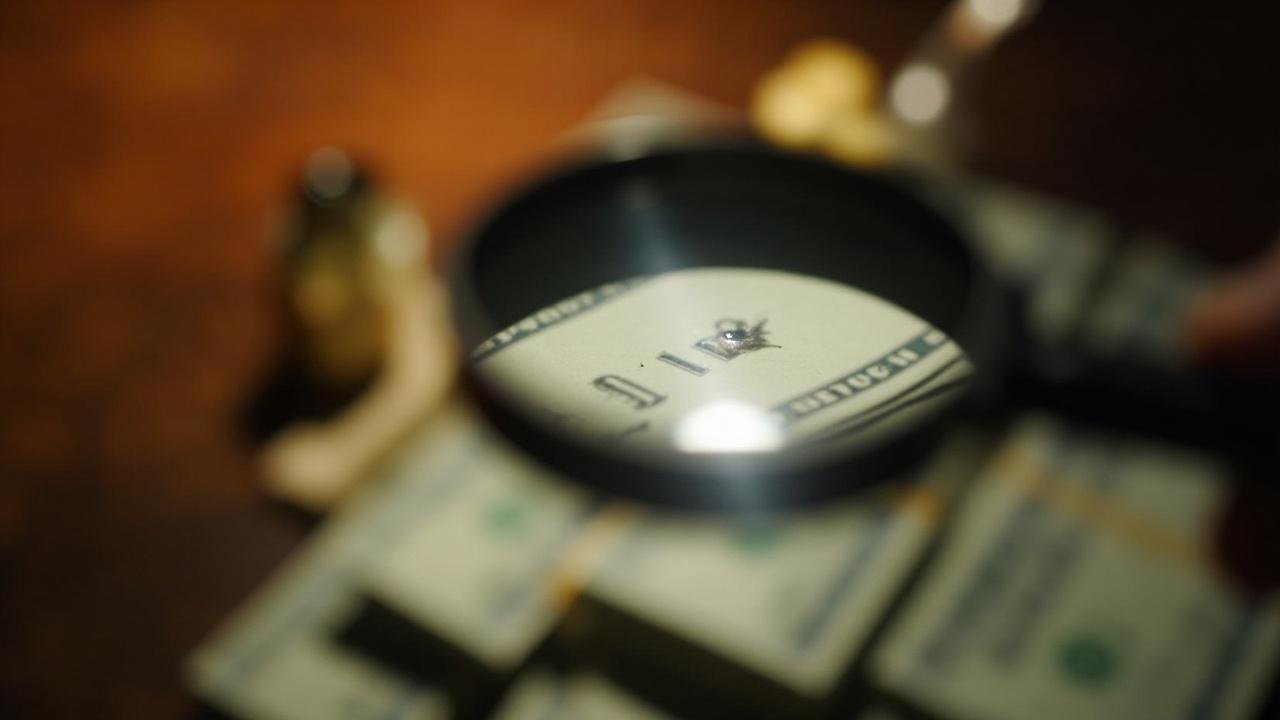Introduction
Culver City disorderly conduct charges are often perceived as minor, yet can lead to serious repercussions. Imagine accidentally bumping into someone on a crowded sidewalk and suddenly facing accusations of disruptive behavior. Disorderly conduct is often seen as a catch-all charge, a vaguely defined offense that can be easily misused or misunderstood.
While many might dismiss it as a trivial matter, a disorderly conduct charge in Culver City can carry significant consequences. It’s crucial to understand what actions actually constitute this offense and what your rights are if you find yourself accused. This blog post aims to demystify the charge of disorderly conduct in Culver City, shedding light on its nuances and potential impact.
We will delve into the specifics of the law, providing clarity on the behaviors that fall under this umbrella. We will explore real-world scenarios within Culver City where such charges might arise, and discuss the role of police discretion in these situations. Understanding the potential penalties and available defenses is essential for anyone facing such accusations.
Defining Disorderly Conduct
California Penal Code 647 provides the legal framework for understanding what constitutes disorderly conduct within the state, and this directly applies to Culver City as well. While the specific interpretation and enforcement may have nuances depending on local ordinances and police practices, Penal Code 647 is the bedrock. This code doesn’t just broadly prohibit “disorderly” behavior; it itemizes particular actions that are considered unlawful. Understanding these specific behaviors is key to knowing your rights and avoiding potential legal trouble.
The Penal Code 647 specifically lists several actions that could lead to a charge of disorderly conduct. These include loitering in or near a public restroom for the purpose of engaging in or soliciting any lewd or unlawful act, begging or soliciting alms in a public place, engaging in lewd or dissolute conduct in a public place, and lodging in any building, structure, vehicle, or public place without the permission of the owner or person in control.
Furthermore, the code addresses situations involving public intoxication to the point where an individual is unable to care for their own safety or the safety of others, or is obstructing a public way. Finally, using offensive words in a public place which are inherently likely to provoke an immediate violent reaction can also be classified as a culver city disorderly conduct offense.
It is important to note that simply being present in a public place or expressing oneself is not, in itself, disorderly conduct. The law focuses on specific disruptive actions that impact public order or safety. For example, merely standing on a sidewalk isn’t a crime unless you are intentionally blocking pedestrian traffic and refusing to move when asked by law enforcement.
Similarly, expressing an unpopular opinion, while potentially causing discomfort to others, does not automatically constitute disorderly conduct unless it crosses the line into fighting words likely to incite violence. Knowing the specific provisions of Penal Code 647 is your first line of defense against a potentially unjust charge.
| Disorderly Conduct Example | California Penal Code |
|---|---|
| Lewd conduct in public | 647(a) |
| Public Intoxication | 647(f) |
| Begging/Soliciting Alms | 647( c ) |
Specific Examples of Disorderly Conduct Scenarios in Culver City
Here are some real-world examples of when someone might face a charge for what some consider minor offenses in Culver City. It’s crucial to understand that context is king; a boisterous conversation over dinner is markedly different from a profanity-laden tirade directed at a passerby. Let’s delve into some scenarios.
Public Spaces and Conduct
Imagine this: A group of friends, excited after watching a film at the Arclight, engage in a lively, perhaps slightly loud, debate about the movie near the Culver Steps. While their enthusiasm is understandable, if their voices reach a level deemed disruptive by law enforcement – particularly late at night – they could potentially be approached and, depending on the officer’s assessment, cited for disorderly conduct. Similarly, consider a street fair: The atmosphere is naturally crowded and bustling.
However, if someone is perceived as aggressively panhandling, repeatedly soliciting money from passersby in a way that feels threatening or intimidating, they could be accused of Culver City disorderly conduct. The line between acceptable behavior and a violation can be blurry and dependent on interpretation.
Intoxication and Public Behavior
Another common scenario involves public intoxication. Picture this: Someone leaving a concert at The Kirk Douglas Theatre has had a bit too much to drink. While simply being intoxicated isn’t automatically a crime, if that person becomes visibly impaired – stumbling, slurring their speech, or acting in a way that disturbs the peace – they could face charges.
This is especially true if their behavior leads to further disruptions, such as blocking a sidewalk or becoming aggressive. It’s essential to remember that the focus isn’t solely on the intoxication itself, but rather on the disruptive behaviors resulting from it.
The Nuances of Blocking Passageways
Finally, let’s think about blocking passageways. Culver City, with its vibrant downtown area, often sees crowded sidewalks. While momentarily pausing to check a map or greet a friend is perfectly normal, intentionally obstructing pedestrian traffic – particularly if done in a confrontational or obstructive manner – could lead to a disorderly conduct charge.
This could include someone staging a protest that completely blocks a sidewalk, or a vendor setting up their wares in a way that creates an unreasonable impediment to pedestrian flow. These examples highlight the subjective nature of the charge and how easily everyday actions can be misconstrued or escalated into legal trouble.
Is It Subjective?
Law enforcement officers are entrusted with the crucial task of maintaining order and ensuring public safety. However, when it comes to disorderly conduct, a significant degree of discretion lies in the hands of the individual officer on the scene. This means that the determination of whether a particular behavior crosses the line into a chargeable offense can be highly subjective.
What one officer perceives as disruptive or threatening, another might view as simply boisterous or eccentric behavior. Factors like the officer’s personal experiences, biases, and even their mood on that specific day can inadvertently influence their judgment.
This inherent subjectivity raises concerns about potential for inconsistent application of the law. Similar situations might lead to drastically different outcomes depending on the officer involved. Furthermore, this opens the door to potential for selective enforcement.
For instance, a person of color or someone from a lower socioeconomic background might be more likely to be targeted for *culver city disorderly conduct* than someone from a more privileged demographic, even if their actions are comparable. This highlights the critical need for awareness of one’s rights and the importance of documenting any interactions with law enforcement as accurately as possible.
Understanding that perceptions of disruptive behavior can be subjective is crucial for anyone living in or visiting Culver City. It underscores the significance of remaining calm and respectful during any encounter with law enforcement, even if you believe you are being wrongly accused.
Knowing your rights, particularly the right to remain silent and the right to an attorney, can be vital in protecting yourself against potential injustices. It is essential to remember that you are not obligated to answer questions without legal representation present, and politely declining to do so can prevent misinterpretations or self-incriminating statements.
| Aspect of Disorderly Conduct Enforcement | Potential Issue |
|---|---|
| Police Discretion | Subjectivity in interpreting behavior |
| Selective Enforcement | Unequal application of the law based on bias |
| Individual Officer Interpretation | Inconsistent outcomes for similar situations |
The Penalties for Disorderly Conduct in Culver City
While a charge of disorderly conduct might seem insignificant, the penalties associated with a conviction in Culver City can have lasting repercussions that extend far beyond a simple fine. It’s crucial to understand that even what appears to be a minor offense can lead to a criminal record, impacting various aspects of your life.
The severity of the penalties often depends on the specific circumstances of the alleged offense and the individual’s prior criminal history, but ignorance of the potential consequences is never an excuse.
A conviction for disorderly conduct in Culver City can result in:
Beyond the immediate penalties, the most significant long-term consequence is the creation of a criminal record. This record can be accessed by potential employers, landlords, and even educational institutions. A criminal record, even for something as seemingly minor as culver city disorderly conduct, can significantly hinder your ability to secure employment, find housing, or pursue educational opportunities.

Background checks are now commonplace, and a criminal record can put you at a distinct disadvantage compared to other applicants. This can limit your career prospects and overall quality of life.
Moreover, a conviction for disorderly conduct can impact other legal rights and privileges. For instance, it might affect your ability to obtain certain professional licenses or even travel to certain countries. It’s important to remember that any criminal conviction can have unforeseen consequences that can linger for years to come. Therefore, it’s crucial to take any disorderly conduct charge seriously and to explore all available legal options to minimize the potential impact on your life.
Defenses Against a Disorderly Conduct Charge
There are several potential legal strategies one can employ when facing a charge of disorderly conduct. The best defense will depend heavily on the specific facts and circumstances surrounding the arrest. It’s important to remember that you are presumed innocent until proven guilty, and the prosecution must prove beyond a reasonable doubt that you committed the offense.
Lack of Intent
One possible defense is arguing a lack of intent. Many disorderly conduct statutes require a showing that the defendant acted with the specific intent to cause public inconvenience, annoyance, or alarm. If your actions, while perhaps disruptive, were unintentional or accidental, this can be a viable defense.
For example, if you tripped and accidentally bumped into someone, leading to a brief altercation, you might argue that you had no intention of causing a disturbance. It is vital to demonstrate the unintentional nature of the act.
Mistaken Identity and Alibi
Another defense is mistaken identity. If you were not the person involved in the incident, then you cannot be held liable. This requires providing evidence that you were somewhere else at the time of the alleged offense, known as an alibi. This could include witness testimony, surveillance footage, or other forms of documentation placing you away from the scene of the incident of culver city disorderly conduct.
Self-Defense and Constitutional Rights
Furthermore, self-defense can be a valid defense if your actions were taken to protect yourself or another person from imminent harm. Even if your actions resulted in a disturbance, if they were a reasonable response to a credible threat, the charges may be dismissed or reduced.
Finally, a defense can be mounted if your constitutional rights were violated during the arrest. For example, if law enforcement lacked probable cause to arrest you, or if they failed to inform you of your Miranda rights, any evidence obtained as a result of the unlawful arrest may be suppressed, potentially leading to a dismissal of the charges. This requires a careful examination of the circumstances surrounding the arrest to determine if any rights were violated.
Given the potential for these defenses, it is always best to have an attorney review your situation.
What to Do if You’re Arrested for Culver City Disorderly Conduct
If you find yourself being arrested for what you believe is a minor infraction like *culver city disorderly conduct*, the experience can still be incredibly stressful and confusing. It’s crucial to remember that even though the charge might seem insignificant, how you react in the immediate aftermath can significantly impact your case. The first and most important thing to do is to remain calm.
Arguing, resisting, or becoming aggressive will only escalate the situation and potentially lead to additional charges. Cooperate with the officers’ instructions, but do so without volunteering any information that could be used against you.
You have the right to remain silent, and you should exercise it. Politely decline to answer any questions without an attorney present. It’s natural to want to explain your side of the story, but anything you say can and will be used against you in court.
Even seemingly innocent explanations can be twisted or misinterpreted. Instead, clearly state that you wish to remain silent and that you want to speak with a lawyer. Repeat this request calmly and consistently if necessary.
After the immediate shock of the arrest subsides, try to remember as many details of the encounter as possible. Write down everything you can recall: the time, the location, the names and badge numbers of the officers involved, what was said by everyone present, and any other relevant details. This information will be invaluable to your attorney as they build your defense.
Finally, contact a lawyer as soon as possible after being released from custody. A skilled attorney can advise you on your rights, explain the charges against you, and begin building a strong defense strategy.
Finding Legal Help
It is crucial to seek legal representation if you find yourself facing a disorderly conduct charge. Navigating the legal system alone can be incredibly daunting, and a skilled attorney can provide invaluable assistance in understanding your rights and exploring your options. A lawyer specializing in defense against culver city disorderly conduct charges can assess the specifics of your case, identify potential weaknesses in the prosecution’s argument, and develop a strong defense strategy tailored to your unique situation.
Here are some ways to connect with a qualified criminal defense attorney in the Culver City area:
When selecting an attorney, consider factors such as their experience in handling disorderly conduct cases, their knowledge of Culver City’s local ordinances and court procedures, and their communication style. Schedule consultations with several attorneys to discuss your case and determine who you feel most comfortable working with. Choosing the right legal representation can make a significant difference in the outcome of your case, ensuring that your rights are protected and that you receive the best possible defense.
Conclusion
Disorderly conduct charges, despite often seeming like minor infractions, can carry significant consequences, and understanding the nuances of the law is paramount. While the specific interpretation of what constitutes disorderly conduct can vary, especially concerning situations that might lead to a culver city disorderly conduct arrest, knowing your rights and the potential defenses available is crucial for anyone facing such accusations.
Remember, a disorderly conduct conviction can result in fines, potential jail time, and a criminal record that could impact future opportunities. Don’t underestimate the seriousness of the charge simply because it may seem less severe than other criminal offenses. The subjective nature of the law and the discretion afforded to law enforcement can sometimes lead to unfair or unwarranted arrests.
Therefore, if you find yourself accused of disorderly conduct in Culver City, taking proactive steps is essential. Remain calm, politely decline to answer questions without legal representation, and immediately seek the counsel of a qualified attorney. By understanding the law, knowing your rights, and securing experienced legal assistance, you can navigate the legal system effectively and protect your future.
Frequently Asked Questions
What constitutes disorderly conduct in Culver City?
Disorderly conduct in Culver City generally involves actions that disturb the peace, create a hazardous condition, or obstruct free passage in a public area. This can include things like excessive noise, fighting, or using offensive language that incites violence.
The specific actions must be disruptive to the community or create a genuine risk to public safety to be considered disorderly conduct.
What are the potential penalties for a disorderly conduct conviction in Culver City?
The penalties for a disorderly conduct conviction in Culver City can vary, but typically involve fines. The court may also impose community service, especially if the offense involved public intoxication or disruption. Repeat offenders may face harsher penalties, and a criminal record could impact future opportunities.
Is disorderly conduct a misdemeanor or a felony in Culver City?
In Culver City, disorderly conduct is generally classified as a misdemeanor offense. This means that the potential consequences are less severe than for a felony, and typically involve fines or relatively short jail sentences rather than lengthy prison terms. The classification reflects the nature of the offense as disruptive but not typically involving serious harm.
What defenses can be used against a disorderly conduct charge in Culver City?
Several defenses can be employed against a disorderly conduct charge in Culver City. One common defense is arguing that the actions did not actually disturb the peace or create a genuine risk of harm.
Another possible defense could involve demonstrating that the actions were protected by freedom of speech or were taken in self-defense. It is also possible to argue mistaken identity.
How does Culver City define ‘public intoxication’ as it relates to disorderly conduct?
While Culver City doesn’t have a specific ordinance solely for ‘public intoxication’, it relates to disorderly conduct when a person’s intoxication leads them to engage in disruptive or dangerous behavior in public. If someone is intoxicated to the point where they are disturbing others, obstructing public passage, or creating a safety hazard, they can be charged with disorderly conduct related to their intoxication.
The focus is on the behavior resulting from the intoxication, rather than simply being intoxicated in public.









